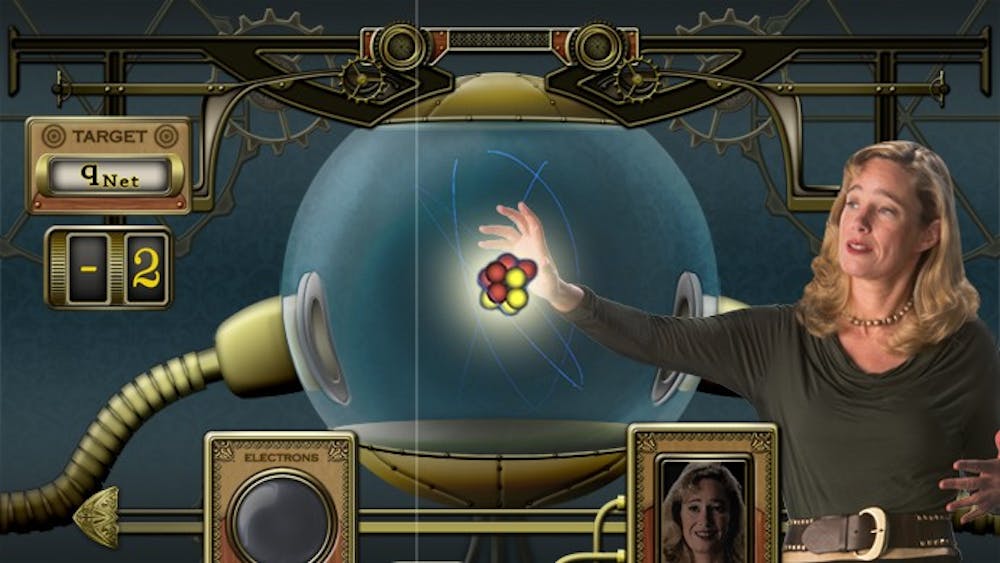A startup spun out of the Ira A. Fulton Schools of Engineering aims to reinvent how science, technology, engineering and math subjects, or STEM, are taught to K-12 students across the United States using games.
Embodied Games, an educational games startup, was founded in 2014 by Mina C. Johnson-Glenberg, an ASU psychology research professor.
“The philosophy is that we make engaging games to teach kids and adults — life long learners —STEM topics, and we do whatever we can to make them embodied, to use your body while you learn,” Johnson-Glenberg said.
Embodied Games uses Xbox Kinect sensors and virtual reality helmets to create an immersive learning environment that aims to engage users, Johnson-Glenberg said. The company hopes to have classrooms adopt the interactive technology for use on learning sites and homework.
The company currently has 10 games, with more in the works. The games cover a wide variety of STEM subjects like centripetal force, the electric field and nutrition.
“I have moderate dyslexia, so I’ve always been interested in how people learn,” Johnson-Glenberg said. “And I always thought that computers would be a great way to help people learn, and computers are so good at making the unseen seen.”
Johnson-Glenberg said she enjoys the ability to take subjects and theories that a student may be unable to experience in real life and create virtual realities to help the students.
“My goal is to inspire some of those kids in middle school who might of dropped out of being interested in science and keep them in the STEM pipeline,” Johnson-Glenberg said. “I think America is going to have a problem producing great scientists going forward, and anything I can do to keep kids interested — I want to throw at them whatever I can.”
Embodied Games is one of the companies included in the Fulton Schools' growing list of startups.
Kyle Squires, dean of the Ira A. Fulton Schools of Engineering, said he believes that some of the University's most successful startups come from faculty and Embodied Games is a prime example.
“Essentially we have a long history, I would say, of faculty who created technology that could become a patent, that could turn into a license, that could lead to a startup company,” Squires said.
Embodied Games used the resources provided from the Fulton Schools, along with help from employed ASU students working on the project.
Colleen Megowan-Romanowicz, a senior fellow for the American Modeling Teachers Association and former research scientist at Embodied Games, said she is proud of the impact the project provides.
“The gaming aspect has really made a big difference for students in their interests and their motivation,” Megowan-Romanowicz said.
She said the games created by Embodied Games have not only sparked more interest among students, but has also helped users retain school subjects, according to a National Science Foundation (NSF) study.
A study published in an open access research article, funded by the NSF in 2016, tested the effects of Embodied Games on students' immediate and delayed learning. Participants didn't show immediate differences in retained information, compared to students not previously exposed to the games but they did show long-term retention.
In a second test conducted a week after the initial experiment, the study showed students who played the games were able to outperform the unexposed students.
Megowan-Romanowicz said she thinks "we will see more and more use of this type of technology, because it makes the technology transparent and allows students to interact directly with conceptual tools.”
Reach the reporter at gabbyt98@gmail.com or follow @GabbyTortorich on Twitter.
Like The State Press on Facebook and follow @statepress on Twitter.




